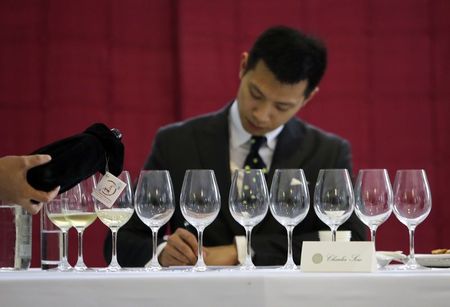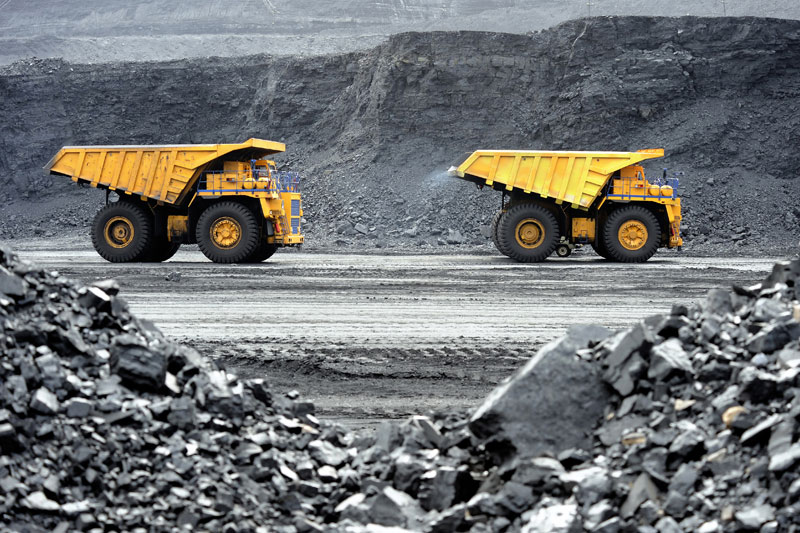By Jake Spring
BEIJING (Reuters) - To reinvent itself in China's new consumption-driven economy, one region will need to crush a few grapes.
After a decade of mining ever more coal to power China's economy, the arid and remote northwestern region of Ningxia is remaking itself as industry slows and demand for fossil fuels is set to wane.
Ningxia has set its sights on becoming China's vineyard.
By offering tax breaks to winemakers, Ningxia wants to produce wine worth 100 billion yuan (10.14 billion pounds) by 2020, or roughly 4-1/2 times the contribution of its entire farming sector to gross domestic product last year, said Cao Kailong, deputy director of the region's forestry ministry.
Successfully swapping coal for wine as China shifts to a greener and more sustainable model of development would position Ningxia as the example of how to make the leap from an "old" to a "new" economy, said Shen Minggao, a Citibank economist.
"How much value-added can the wine industry produce? This again is related to the quality of services and product and brand names," Shen said.
"Ningxia will have to compete with some European countries. If they are able to do that, I think the upside is huge."
China's growing thirst for wine means the market, at least, is on Ningxia's side.
Chinese drinkers consumed about 1.6 billion litres of non-sparkling grape wine in 2013 including imports, Euromonitor statistics show. Ningxia produced only 16.7 million litres of that, according to government data.
The traditional drivers of growth in the world's second-biggest economy are not doing as well. Manfacturing sector growth fell to a six-year low in August, helping to halve global coal prices from a 2011 peak.
The slump in coal prices is painful for Ningxia, which quadrupled daily coal production between 2000 and 2010 to 181,000 metric tonnes.
ENOUGH JOBS?
Yet Ningxia's quest to develop winemaking will not be a cure-all.
Industry and construction still make up roughly half its economy, growing 12.5 percent in 2013 and far outpacing growth of 7.5 percent in services and 4.5 percent in agriculture.
Wine-making can only partially address its unemployment, which stood at 4.2 percent in 2012, the highest among urban areas in any of China's regions for the fourth straight year.
"It will create more jobs than any other agricultural industry, but we cannot expect the wine industry will create jobs like a shirt company, for example," said a professor at China Agricultural University, Ma Huiqin, who is a wine project consultant.
Winemaking supports about 300,000 people in the region, most of them seasonal migrants who shuttle between vineyards, said forestry official Cao.
And the weather could prove a risk. Generally, the region's sandy loam soil and relatively dry climate is well-suited to growing grapes, Ma said.
However, Ningxia's plans suffered their first setback soon after the government kicked off its winemaking push, when unusual rains in 2012 caused vines to rot, and cut output by a third.
For now, Ningxia remains focused on its winemaking ambitions.
The government plans to double the land area of vineyards to about 65,000 hectares (165,000 acres). It will also step up efforts to attract 60 foreign winemakers to Ningxia to build up industry know-how.
"They've said put vines in, let's build this up," said David Tyney, an Australian who will be working at a Ningxia vineyard as the chief winemaker.

"In four or five years' time, you're going to see the effect of all of this planning," Tyney said.
(Reporting by Jake Spring; Editing by Clarence Fernandez)
